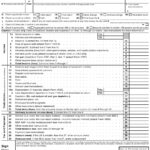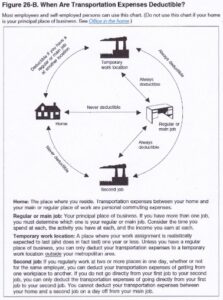Content

In short, ERP accounting software helps companies a lot in boosting their rate of productivity, transparency, scalability, efficiency, and effectiveness. For example, typical accounting software offers financial management, planning, and budgeting features as its basic package. But the same box can be integrated with other business operations such as project and supply chain management, reporting and analysis, and human resources management. The basic difference between both these terms is that the accounting software usually helps to covers areas like banking; accounts payable, receivable; financial reporting, and some basic sales recordings. In simple terms, accounting software is designed to manage a few specific business areas.
- This arrangement is usually sufficient for most small businesses, though it can become a problem if you have more advanced accounting needs.
- Accounting software only allows users to integrate with a select library of apps that they already integrate with.
- FinancialForce offers business services and business process outsourcing organizations a modern ERP suite that drives operational efficiencies while also improving customer experience and key business metrics.
- An automated document gateway that receives, organizes, and processes documents.
Accounting software providers are limited when it comes to the quantity and variety of data you get. You’ll see your balance sheets with your plus and minus ledgers, and you can review your cost-benefit analysis over time. But at present, we have an option called https://kelleysbookkeeping.com/ cloud-based ERP which tends to be accessible for small businesses. While both are important for your business in their own unique ways, the ERP is more flexible compared to the accounting software and lets you manage different tasks more conveniently.
What is the Difference between ERP System & Accounting Software
Whether your organization operates in finance, education or healthcare, Multiview Cloud ERP can streamline your organization’s operations. We provide a cloud-based, integrated ERP platform to save you time and space while enhancing the transparency of your record-keeping. Create an environment where accounting, HR, inventory management, marketing and other departments provide context to your organization’s financial decisions. With our cloud-based operating system, you’ll experience increased transparency and security. On the other hand, the ERP system is a fully integrated system that deals with the functions of accounting software along with a whole host of other functions within a business. These include inventory and supply chain management, customer relationship management, online selling and buying, and warehouse management.
As the Head of Sales for North America at Priority, Todd brings 25 years of sales experience and expertise in enterprise software and services to Priority's fast-expanding North American operations. For the last 10 years, Todd's rich skillset has focused on ERP, SCM, WHM, and HCM, including establishing new channels and alliances. Originally from Detroit, Todd and his family now reside in Charlotte, NC. When he takes a long-awaited break from selling ERP, Todd enjoys a good game of golf, fine wine, watching football, and barbequing in his smoker.
What are some of the leading ERP systems for finance teams?
Data is streamlined from various departments so finance departments can make more educated, advanced decisions for their organization. By exploring the core difference between accounting software and ERP systems, you can more easily identify the answer for which system your organization needs. At their core, accounting and ERP systems aim to provide employees with a more streamlined, insightful approach to record-keeping. Accounting software is typically included as one part of the functionality of an ERP system. But accounting software has a narrower purpose and the two types of software are not identical. When companies start out, their way of doing things is typically very ad hoc.

As such, looking for a specific ERP accounting definition can be misleading. We’ll provide some side-by-side examples of why ERP is superior to accounting tools by many metrics, and then give some brief examples of ERP systems Erp Vs Accounting Systems in action. If you think that ERP software would benefit your business, there are plenty of ERP solutions to choose from. It’s important to do the research to find out which system will be right for your business.
What do the tiers in CloudRank™ mean?
With ERP software providing all the necessary accounting data plus additional features, it’s a no-brainer for companies to solely use an ERP. Having both Accounting Software like Quickbooks and ERP like SAP will never make sense. Even non-profits can benefit from utilizing the best accounting software to better track their donations and expenses in one convenient place.

Thankfully integrating your ERP systems with more specialized accounting software can give you the best of both worlds (as we’ll explain shortly). Cloud-based ERP software is more beneficial for distributed and remote finance teams. They access everything they need to get their work done when working away from the office. An on-premise system requires that you install physical software on each firm server and computer your team uses. With a cloud-based system (usually a software-as-a-service—SaaS—model), everything is run securely online and off-site. Tasked with managing your financial health in today’s digital economy, your accounting team members enjoy high-tech tools that help them operate at scale.